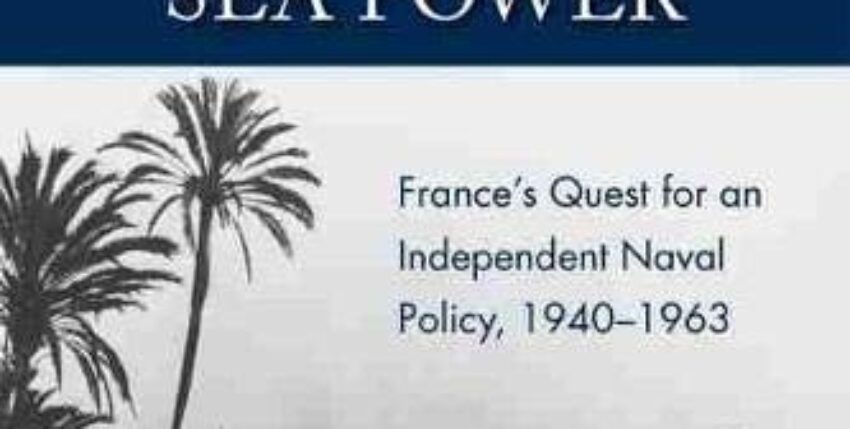In his recently published book, Hugues Canuel, naval officer in the Royal Canadian Navy, examines 25 years of French naval policy, which, following France's defeat in the Second World War, attempted to develop an independent, national policy during the period of the armistice, the resistance against Germany, the alliance with the USA and Great Britain and the years of the Cold War, including the nuclearisation of its submarines. The aim was to combine the interests of a classic land power with its interests in the colonies and overseas territories with the support of naval forces. As this period has not been recognised by scholars in either the Anglo-Saxon or German-speaking world, this study closes an important research gap in the question of French naval policy.
While the first three chapters deal with the formation of a fleet for Free France, its rearmament and cooperation with the USA and Great Britain in the second half of the Second World War, the three subsequent chapters trace the French Admiralty's thoughts on the future defence of French interests, both alone and in the NATO alliance. In doing so, he makes clear the bitter dispute between American and French ideas on the reconstruction of the French Navy in particular. The ideas on the development of a Blue Water Fleet for worldwide use lead to a rift both with the Allies and in France and ultimately to a break with the Allies in the Alliance. This closes the circle around 1963 with the formation of the Fifth Republic, the return of General de Gaulle as its president and his decision to withdraw from NATO. At the same time, de Gaulle pursued the nuclear armament of the French armed forces and thus also of the French Navy. In his final chapter, the author takes us back to this period, which was characterised by the development of its own atomic bomb, its militarisation for land-based missiles, land and sea-based aircraft and strategic submarines. The conventional armed forces of the time had to put their plans on the back burner, as nuclear armament and the development of a new infrastructure consumed large parts of the defence budget.
France's recent decision to develop and build the third generation of strategic submarines, their nuclear propulsion and their new sea-based ballistic missiles gives an idea of how strategic deterrence is likely to swallow up large parts of the defence budget here too. In this context too, this book can help to learn from the experiences of the 1960s and 1970s for the future of French sea-based deterrence. It is therefore highly recommended reading.
Hugues Canuel: The Fall and Rise of French Sea Power. France's Quest for an Independent Naval Policy, 1940-1963, Naval Institute Press, approx. 45 euros, ISBN 978-1682476161
Text: Heinz Dieter Jopp; Photo: private











